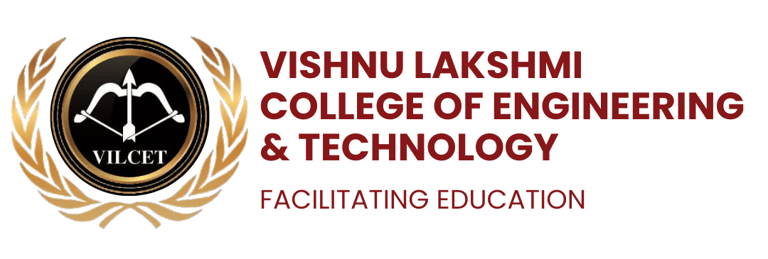COURSES OFFERED
Vision
To produce globally competitive Computer Science Engineers and Entrepreneurs with moral values.
Mission
Provide quality education to enhance problem solving skills, leadership qualities, and team-sprit and ethical responsibilities
Enable the students to adapt to the rapidly changing technologies by providing advanced laboratories and facilities
Promote research based activities in the emerging areas of techno-environment in order to meet industrial and societal needs
PROGRAM EDUCATIONAL OBJECTIVES (PEOs)
PEO1: Core Competency: Graduates will acquire a strong foundation in mathematical, scientific and engineering fundamentals necessary to formulate, solve and analyze Computer Science and Engineering problems.
PEO2: Professionalism: Graduates will practice the profession with ethics, integrity and leadership to relate engineering to global perspective issues and social context.
PEO3: Higher Studies and Entrepreneurship: Graduates will be prepared for their careers in the software industry or in higher studies leading to research and for applying the spirit of innovation and entrepreneurship in their career and continuing to develop their professional knowledge on a life long basis.
PROGRAM OUTCOMES (POs)
PO1: Engineering knowledge: Apply the knowledge of mathematics, science, engineering fundamentals, and an engineering specialization to the solution of complex engineering problems.
PO2: Problem analysis: Identify, formulate, review research literature, and analyze complex engineering problems reaching substantiated conclusions using first principles of mathematics, natural sciences, and engineering sciences.
PO3: Design/development of solutions: Design solutions for complex engineering problems and design system components or processes that meet the specified needs with appropriate consideration for the public health and safety, and the cultural, societal, and environmental considerations.
PO4: Conduct investigations of complex problems: Use research-based knowledge and research methods including design of experiments, analysis and interpretation of data, and synthesis of the information to provide valid conclusions.
PO5: Modern tool usage: Create, select, and apply appropriate techniques, resources, and modern engineering and IT tools including prediction and modeling to complex engineering activities with an understanding of the limitations.
PO6: The engineer and society: Apply reasoning informed by the contextual knowledge to assess societal, health, safety, legal and cultural issues and the consequent responsibilities relevant to the professional engineering practice.
PO7: Environment and sustainability: Understand the impact of the professional engineering solutions in societal and environmental contexts, and demonstrate the knowledge of, and need for sustainable development.
PO8: Ethics: Apply ethical principles and commit to professional ethics and responsibilities and norms of the engineering practice.
PO9: Individual and team work: Function effectively as an individual, and as a member or leader in diverse teams, and in multidisciplinary settings.
PO10: Communication: Communicate effectively on complex engineering activities with the engineering community and with society at large, such as, being able to comprehend and write effective reports and design documentation, make effective presentations, and give and receive clear instructions.
PO11: Project management and finance: Demonstrate knowledge and understanding of the engineering and management principles and apply these to one’s own work, as a member and leader in a team, to manage projects and in multidisciplinary environments.
PO12: Life-long learning: Recognize the need for, and have the preparation and ability to engage in independent and life-long learning in the broadest context of technological change.
PROGRAM SPECIFIC OUTCOMES (PSOs)
The graduate of Computer Science and Engineering Program will demonstrate:
PSO1: Software System Design and Development: The ability to apply software development life cycle principles to design and develop the application software that meet the automation needs of society and industry.
PSO2: Computing and Research ability: The ability to employ modern computer languages, environments and platforms in creating innovative career paths in SMAC (Social, Mobile, Analytics and Cloud) technologies.
From HOD Desk
Our core subjects include Programming Languages, Computer Architecture, Object-Oriented Analysis and Design, Networking Technologies, Database Systems, Cloud Computing, and Artificial Intelligence. Equipped with cutting-edge laboratories and guided by an enthusiastic faculty, the department aims to mold future-ready engineers capable of driving technological transformations across industries.
To bridge academia and industry, we regularly host guest lectures, technical talks, and workshops led by experts, alumni, and academicians. Students are also encouraged to participate in co-curricular and extracurricular activities through vibrant student clubs and associations.
Career readiness is a major focus—students receive dedicated training in communication, aptitude, programming, and technical skills. Entrepreneurial development, competitive exam preparation, and higher education guidance are also integral parts of the department’s mission.


